Meet all 14 finalists and learn more about their projects.
Primary Care Internal Medicine Resident and Post-Doctoral Fellow, UCLA
Project: A multilingual financial health toolkit in the form of a cookbook that combines recipes with a basic financial health curriculum for immigrant families who are undocumented.
Katie Fruin is an internal medicine resident at UCLA within the VA/Santa Monica Primary Care Track. Her family’s experiences as refugees instilled in her a passion for addressing the health needs of vulnerable populations.
As an internal medicine resident in UCLA’s Primary Care Internal Medicine Residency, Dr. Fruin provides primary care to veterans experiencing homelessness at the West Los Angeles VA Medical Center, inpatient care to residents of the San Fernando Valley at Olive View Medical Center, and Angelenos from across the county seeking quaternary care at UCLA Ronald Reagan and Santa Monica hospitals.
Dr. Fruin’s research focuses on how improving economic development and financial health can improve physical and mental health outcomes. She is excited for the opportunity to partner with No Us Without You, an innovative nonprofit combating financial insecurity among undocumented restaurant workers and their families.
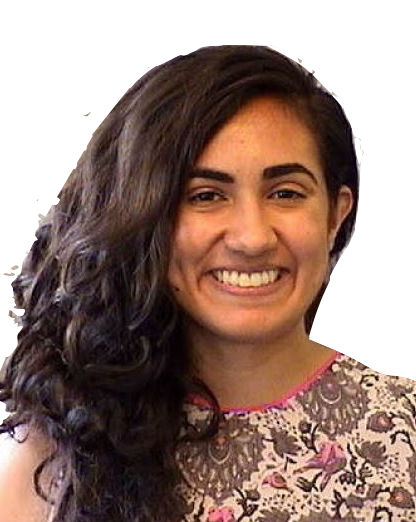
My partner organization, No Us Without You, grew out of a grassroots response to feed the families of undocumented restaurant workers who were struggling to provide for their families amidst the restaurant closures of COVID-19. Together we hope to make financial health resources more accessible to undocumented Angelenos and their families to improve overall financial, mental, and physical well-being.
PhD in Social Welfare, UCLA Luskin School of Public Affairs
Project: Technology-based interventions to facilitate Intimate Partner Violence (IPV) prevention, predict IPV victimization using social media data, and inform IPV help-seeking strategies that are specifically tailored for gay, bisexual, and other men who have sex with men.
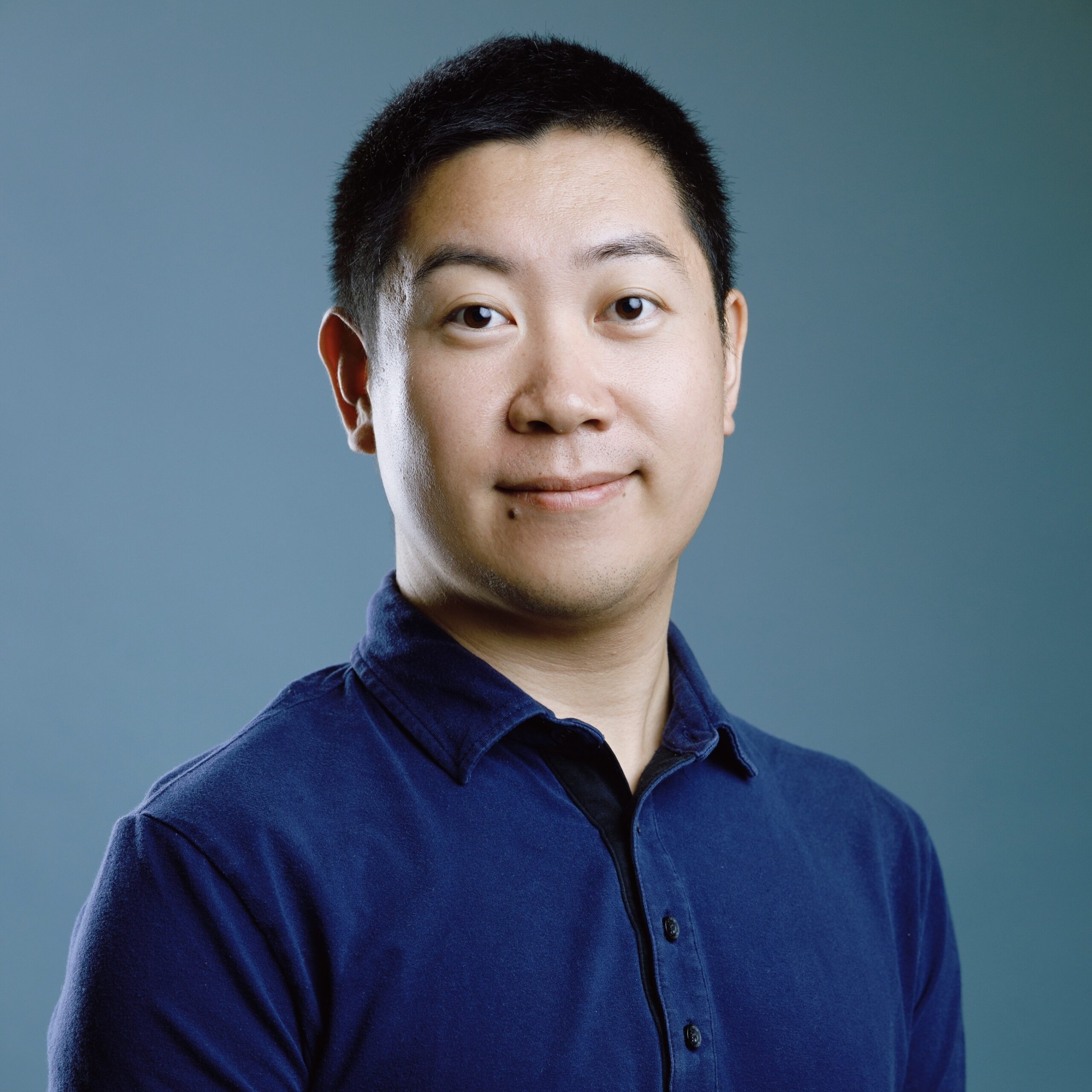
Chenglin Hong, MSW, MPH, is a third-year PhD student in Social Welfare at UCLA. His research interests focus on reducing health disparities among sexual and gender minorities, with a particular focus on HIV prevention and sexual/mental health promotion among gay, bisexual, and other men who have sex with men (GBMSM).
As a trained social worker, his work seeks to understand the intersections between intimate partner violence, stigma, and sexual and mental health outcomes with the aim of developing interventions that disrupt the adverse pathways among these domains. He is particularly interested in developing, testing, and evaluating technology-based interventions for health promotion and utilizing data science approaches (e.g., machine learning/natural language processing) to predict health outcomes using social media data.
Since he started his PhD in 2020, Hong has published over 17 peer-reviewed articles in top-tier journals, including AIDS and Behavior, AIDS Patient Care and STDs, Journal of Medical Internet Research, among others. His research has been presented at national and international academic conferences such as the International AIDS Conference, American Public Health Association Conference, and Society for Social Work Research Conference.
Gay, bisexual, and other men who have sex with men (GBMSM) experience intimate partner violence (IPV) at rates similar to or even higher than their heterosexual counterparts, but many people who experience IPV do not report abuse or only make partial use of help sources due to shame, stigma, fear of disclosure, and abandonment that results from social desirability toward masculine stereotypes and the health and policy systems that reinforce homophobia and stigmatization of same-sex sexual behaviors. Technology-based interventions (TBIs) have been widely used in health promotion and disease prevention in the past decade to facilitate large-scale information dissemination and deliver cost-effective services to promote and maintain behavioral health. However, there are no TBIs developed for IPV prevention among GBMSM. This mixed-method project aims to understand the help-seeking process among GBMSM IPV victims and how it impacts the decision-making on utilizing HIV prevention services such as pre-exposure prophylaxis and establish the preferences for and willingness to receive TBIs for IPV prevention and services.
PhD in Higher Education and Organizational Change, UCLA School of Education & Information Studies
Project: Integrate trauma-informed yoga services into domestic and sexual violence agencies in Los Angeles County, providing Asian and Pacific Islander survivors access to healing modalities, and supporting their trauma recovery and overall health and wellness.
Nadeeka Karunaratne is a PhD candidate in the Higher Education and Organizational Change program at UCLA. She conducts research on issues of campus sexual and relationship violence, exploring the experiences of minoritized survivors with a focus on healing. She is currently an American Association of University Women (AAUW) Fellow. She also serves as an Adjunct Instructor in California Lutheran University’s Department of Counselor Education.
Karunaratne previously worked at the Race and Equity Center at the University of Southern California, the Cross-Cultural Center at UC Irvine, and UC Irvine’s Campus Assault Resources & Education office. She is also a trauma-informed yoga instructor and leads healing yoga programs on college campuses and in the community.
Karunaratne has a master’s degree in Student Affairs Administration from Michigan State University and a bachelor’s degree in Chemistry from UC Berkeley.
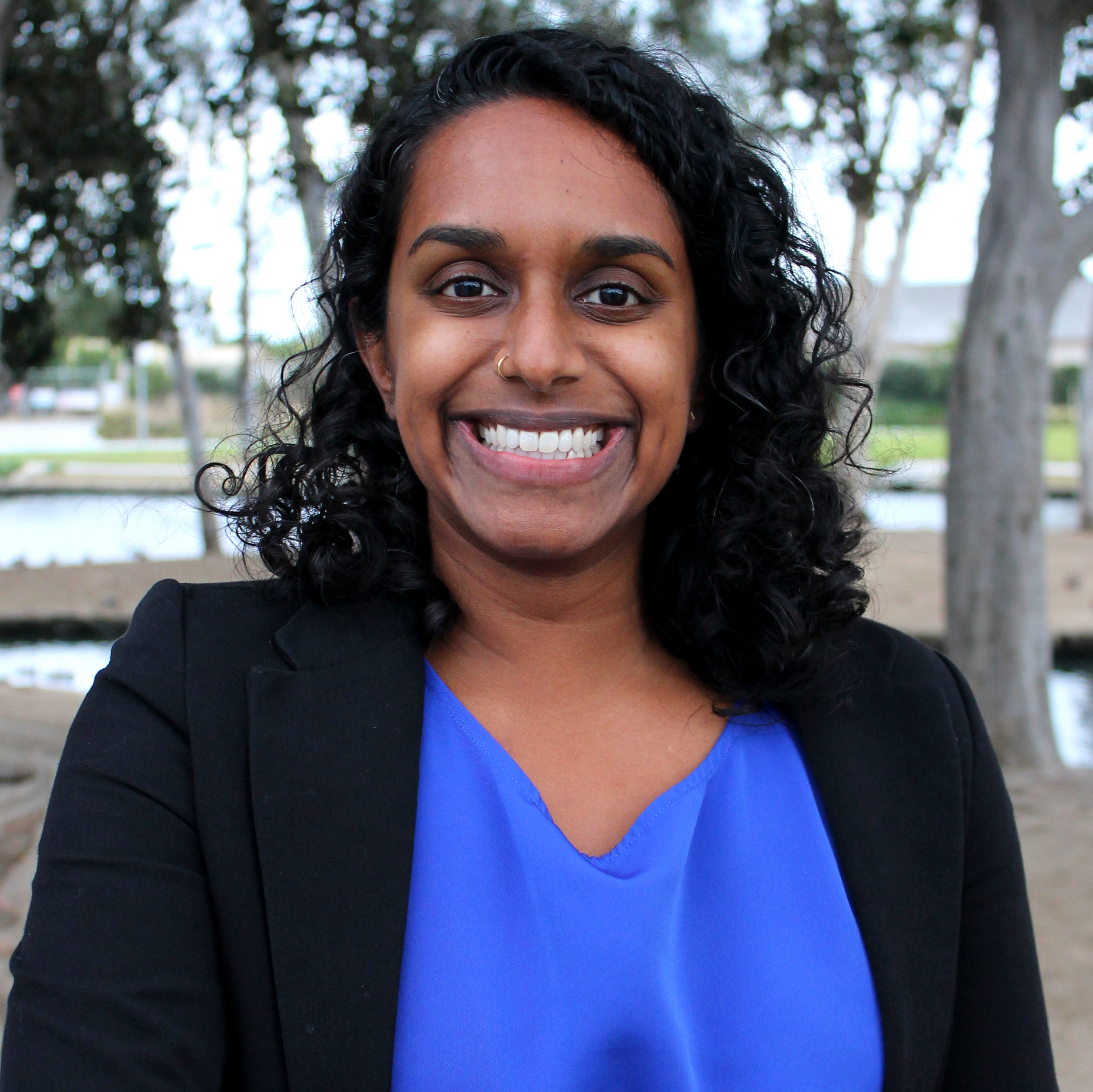
In my work with survivors of sexual and relationship violence, I have seen how culturally-sustaining and power-conscious services like trauma-healing yoga can foster radical healing. I hope this project increases access to vital healing modalities for queer and trans survivors and survivors of color in our community.
Doctor of Medicine and Master of Public Health, David Geffen School of Medicine at UCLA and UCLA Fielding School of Public Health
Project: A pilot program that offers financial services and education, including tailored employment, credit, debt, and budget counseling for low-income communities in South Los Angeles, in a trusted community-based setting.
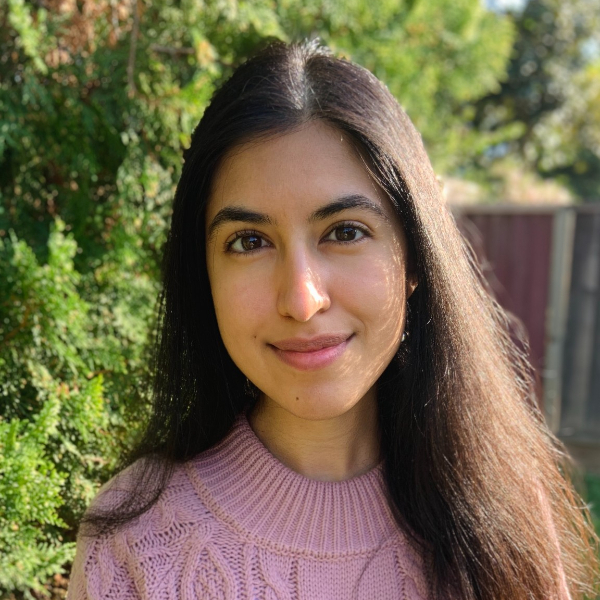
Mariam Khan is committed to advancing health equity as a relentless advocate for equitable access to opportunity. Her experience growing up without consistent access to health care informed her commitment to raising the quality of life for all by promoting health and well-being.
Khan received her BS in Public Health at Santa Clara University. At the time, she was researching minority stress and seeking to expand access to behavioral health services in the primary care setting. After graduation, she worked for several years as an Oncology Clinical Research Associate in Kaiser San Jose, where she also served on the Adverse Childhood Experiences Steering Committee to pilot trauma-informed care and research the health impacts of early life stress.
Khan is currently earning an MD and a Master’s in Public Health at UCLA. During her graduate studies, she successfully campaigned with her peers for a longitudinal structural racism and health equity medical school curriculum for which she currently serves as a tutor. She also collaborated on policy recommendations addressing California’s failure to protect statute using a harm reduction lens.
Khan ultimately hopes to train as a future primary care leader and work towards health justice through meaningful policy change.
Poverty is a well-documented threat to health. There is an acute need for new models of community care providing culturally tailored and accessible financial interventions. My hope is to economically empower low-income communities of color by offering financial services in a trusted community-based setting.
Master of Public Health in Health Policy and Management, UCLA Fielding School of Public Health, and second-year fellow in a combined Infectious Diseases and Preventive Medicine program, David Geffen School of Medicine at UCLA
Project: Combines a behavioral approach that uses systemic reinforcement (either money or vouchers) with the administration of oral PrEP— to decrease the risk of HIV acquisition in people experiencing homelessness and at risk of HIV infection.
Dr. Cassandra Lautredou is a current second-year fellow in a combined Infectious Diseases and Preventive Medicine program at UCLA. She is a current graduate student in the Health Policy and Management track at the UCLA Fielding School of Public Health. Her research and quality improvement projects focus on the treatment and prevention of HIV, sexually transmitted infections, and viral hepatitis.
Dr. Lautredou is a member of the American College of Preventive Medicine (ACPM), Infectious Disease Society of America (IDSA), American Board of Internal Medicine (ABIM), and American Academy of HIV Medicine (AAHM).
Dr. Lautredou received her medical degree from the University of Arkansas for Medical Sciences and completed her internship and residency training in internal medicine at Duke University Medical Center. She received her undergraduate degree in Molecular, Cell, and Developmental Biology from UCLA.
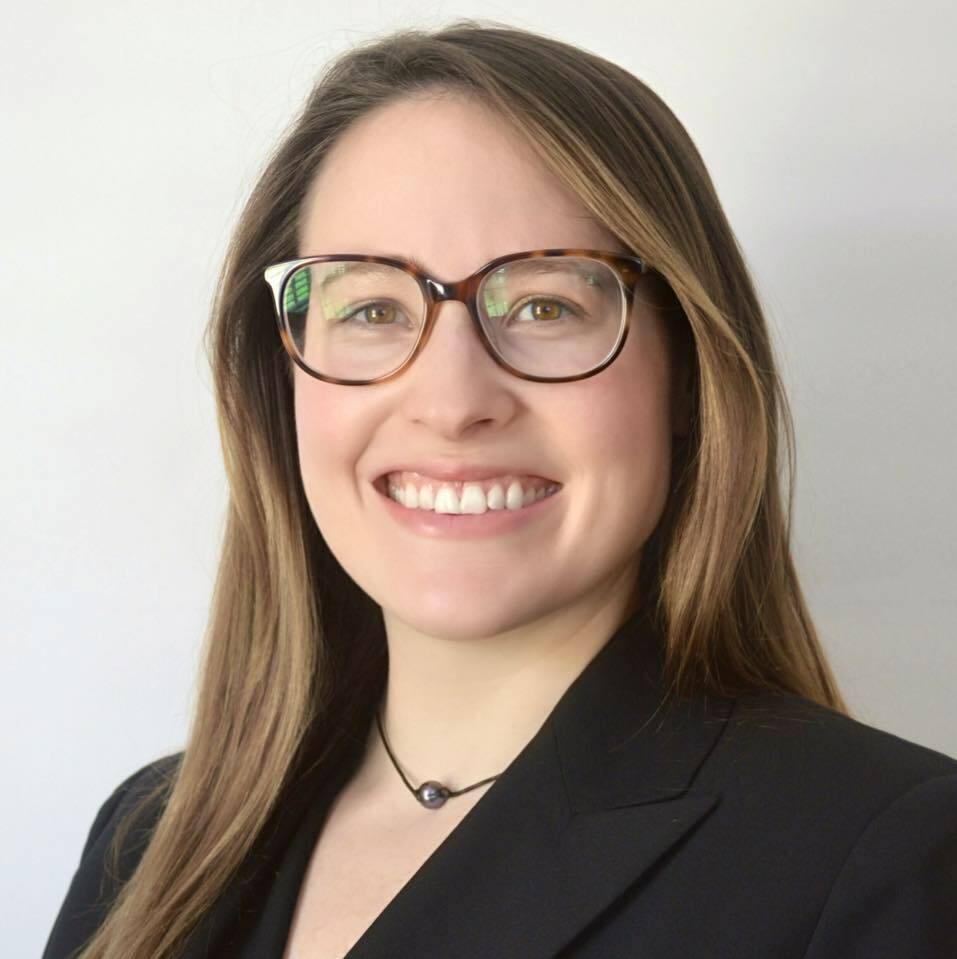
The number of persons experiencing homelessness (PEH) in Los Angeles County has increased 4.1 percent from 2020 to 2022, and many of these individuals have unique risk factors for acquisition of HIV. Our project aims to combine oral pre-exposure prophylaxis (PrEP) with contingency management to decrease HIV acquisition in PEH through the Los Angeles County Department of Health Services mobile clinic and street medicine program.
Doctor of Medicine and PhD, David Geffen School of Medicine at UCLA and UCLA Medical and Imaging Informatics (MII)
Project: Transform safety net health care clinics into anti-poverty gateways through the development of a web app that provides low-income families with easy-to-understand information and digital applications for anti-poverty programs at the federal, state, and local levels.
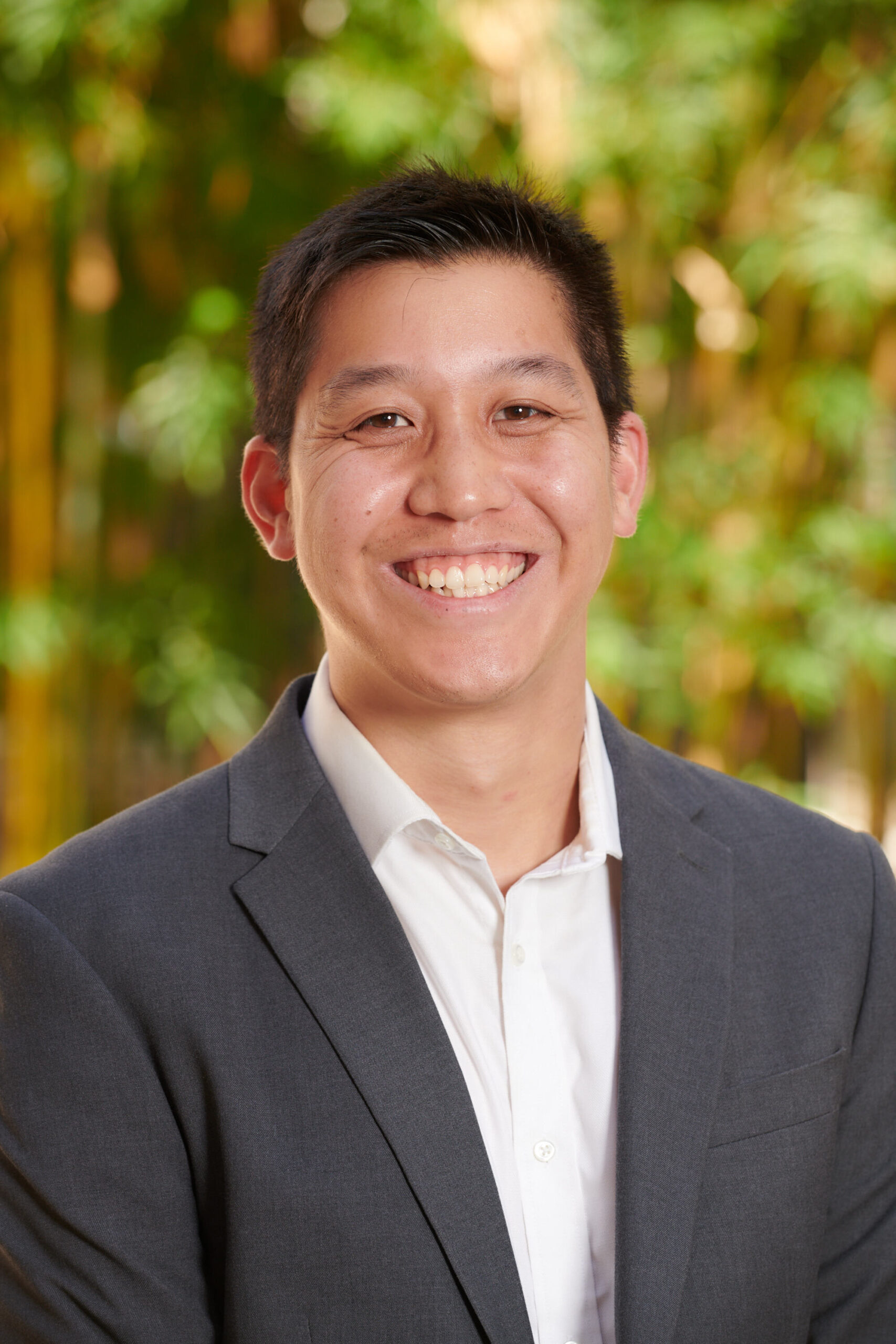
Patrick Liu (he/him/his) is a Bay Area native and son of Chinese immigrants. He is passionate about advancing health equity through data-driven, people-centered, and action-oriented research and implementation. He is a MD student at the UCLA David Geffen School of Medicine and PhD student with UCLA Medical and Imaging Informatics (MII). His research examines drivers of inequitable access to care; the design of human-centered approaches that reconnect a disconnected social safety net; and cross-sector care models that bridge health care, social care, and community supports to improve life course equity.
Liu earned his MPH in Global Health Metrics at the University of Washington and his BA in Neuroscience and Economics from Pomona College. He was a former fellow with the Institute for Health Metrics and Evaluation.
I believe that in order to achieve health equity, we must reshape our systems to actively invest in — and not just intervene on — the health and financial well-being of our communities. My hope is that through the Health Equity Challenge, we can begin to build stronger bridges to evidence-based approaches that directly address poverty as a cause of health inequity for families in Los Angeles.
Master of Public Health in Environmental Health Sciences and Policy, UCLA Fielding School of Public Health
Project: A water quality improvement program to prevent and reduce the rate of related disease among people from lower socioeconomic statuses who are more at risk.
Mohammad Khorgamphar is an MPH student in the Environmental Health Sciences and Policy program at the UCLA Fielding School of Public Health. He is also currently an employee at the UCLA Ronald Reagan Medical Center, and his research interests include mental health, access to care, quality of health care delivery, and health disparities.
As a future physician and public health professional, Khorgamphar believes that practicing medicine goes beyond merely hospitals and clinics: Physicians and health care professionals are obligated to bring healing, comfort, and hope to the entire community. In his free time, he enjoys teaching, hiking, traveling, and reading.
Khorgamphar completed his undergraduate degree in Psychological Sciences at the University of California Irvine.
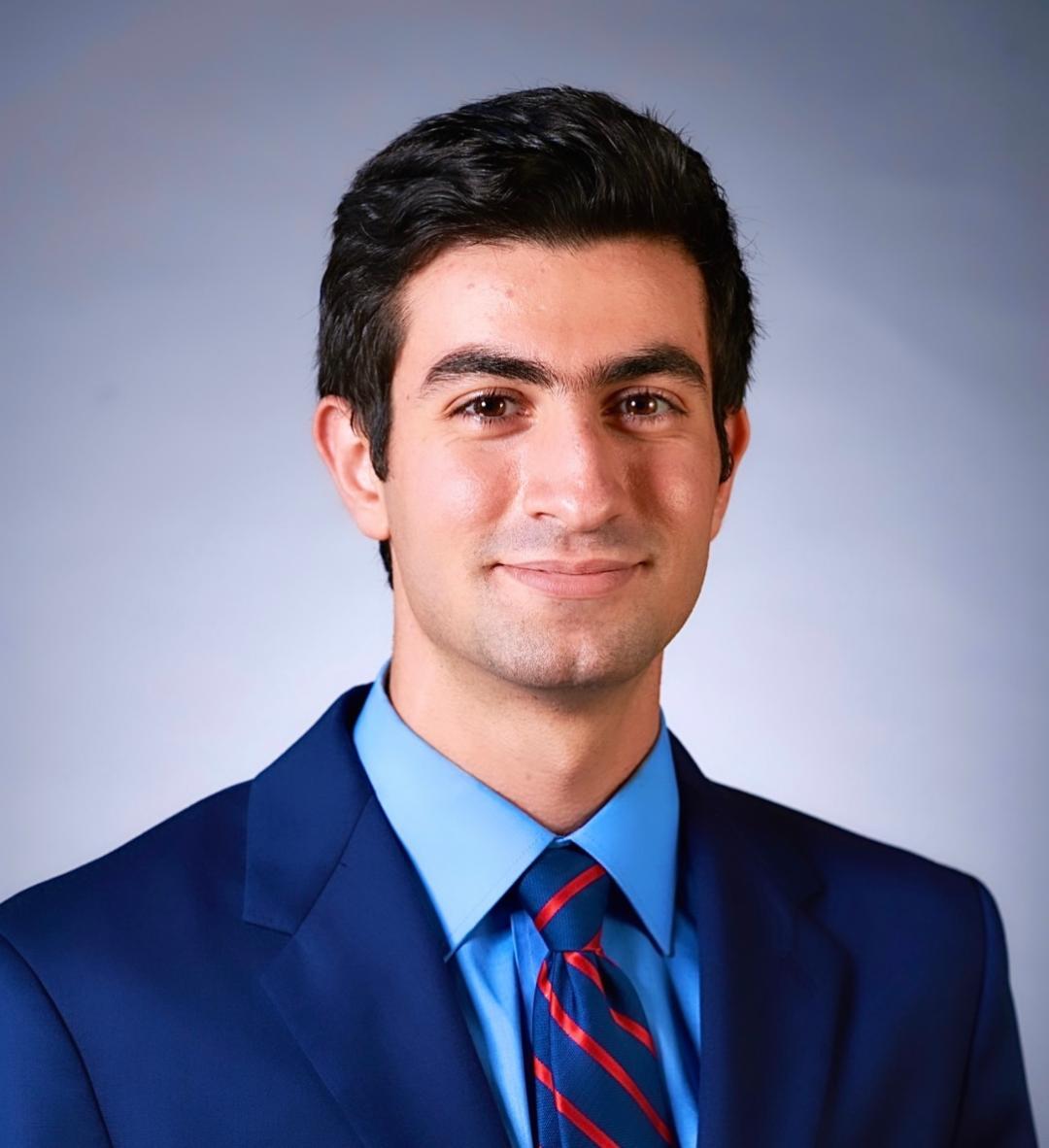
As an immigrant and first-generation graduate student, I’ve always been fascinated by health care disparities and access to health care. The high rate of health care disparities and lack of access to health care among veterans and socioeconomically disadvantaged communities, despite all awareness and support, reveals the poor distribution of quality health services in America. I’m interested in studying and addressing the effects of aluminum and other metal contamination in the water supply among housing-insecure populations. To secure a healthy, equal, and safe world for future generations, I aim to give others the same chances I received when I came to America.
PhD in Health Policy and Management, UCLA Fielding School of Public Health
Project: A social support public health intervention for overweight/obese children and children with special health care needs in Riverside County, California.

Purnima S. Mudnal-Bharath is a fourth-year PhD student in the Department of Health Policy and Management at the UCLA Fielding School of Public Health. Her research focuses on improving health care access and quality of care for patients, particularly for children with special health care needs, and reducing disparities in receipt of care and care quality for families and communities. The impetus for this work stems from her diverse research experience at UCLA and West Los Angeles VA Medical Center in enhancing and supporting the patient-centered medical home model and improving teamwork behaviors in primary care teams.
In her dissertation project, Mudnal-Bharath hopes to better understand the impact of the COVID-19 pandemic on children’s health by examining patterns in health care access and care-related disparities. Her research priority is to support interventions and practices that can help children avoid chronic long-term disease consequences owing to disruptions in accessing needed screening, therapy, and specialty care services.
Supporting these children in improving their health and avoiding chronic long-term disease consequences is a priority for me as a health services researcher and mother, as I have personally observed and experienced the stigmatization and burden these children carry when they are overweight/obese.
Doctor of Medicine, Program in Medical Education – Leadership and Advocacy (PRIME-LA), David Geffen School of Medicine at UCLA
Project: A comprehensive mobile health screening protocol for chronic eye diseases designed for use in low-resource settings, titled Integrated Screening Eye Exams – Los Angeles (iSEE-LA).
Karla Murillo is a first-generation medical student at the UCLA Program in Medical Education — Leadership and Advocacy (PRIME-LA). She was raised in Bakersfield, CA, and is the daughter of Mexican immigrants.
During her time as an undergraduate student at UCLA, she was involved in Latinxs/Chicanxs for Community Medicine (LCCM), UCLA High AIMS, and the Center for the Study of Latino Health and Culture (CESLAC). During her enrichment years, she worked for UC Davis Prep Medico, mentoring first-year undergraduate students and continued working with CESLAC.
In 2020, Murillo started medical school with the PRIME-LA dual program which trains future physicians dedicated to addressing health disparities. She continues to mentor pre-medical students under represented in medicine through her past role as UCLA Latino Medical Student Association Co-Chair and present role as a UCLA High AIMS Graduate Mentor.
Murillo also volunteers with UCLA Mobile Eye Clinic to deliver free vision care to under-resourced communities in Greater Los Angeles. She intends to become an ophthalmologist and continue to engage in ophthalmic epidemiologic research to impact policy and provide equitable vision care to underresourced communities.
She obtained a Bachelor of Science in Molecular, Cell, and Developmental Biology and a Bachelor of Arts in Spanish, Community and Culture at UCLA in 2017.

As an aspiring ophthalmologist and public health investigator, I’m interested in increasing access to ophthalmic care in under-resourced communities of color and systemically marginalized groups. I hope that through the Health Equity Challenge, I help create sustainable efforts to address eye health among the broader Los Angeles community and provide quality care for communities made vulnerable.
Doctor of Medicine, Charles R. Drew and UCLA Medical Education Program
Project: Expands access to sun protective measures for people experiencing homelessness and reduces skin cancer by providing sunscreen dispensers in community parks and nearby highly-trafficked areas.

McKayla Poppens is a rising fourth-year medical student in the Charles R. Drew/UCLA Medical Education Program. She grew up in rural South Dakota and is the proud daughter of a farmer and nurse.
She moved to Los Angeles to attend medical school, where she has volunteered in several community free clinics, tutored K-12 students experiencing homelessness, co-led a violence prevention health symposium, and researched local and global health care disparities. Poppens was named a 2022 Albert Schweitzer Fellow, which provided her the opportunity for mentorship to raise awareness and address medical misinformation about skin cancer and adolescent-prone skin conditions among high-school-aged students in South Los Angeles.
In her free time, Poppens enjoys running, hiking, and challenging local golfers to longest-drive contests. She aspires to complete a dermatology residency, during which she will continue her passions for community health education and policy advocacy.
Poppens earned her BA in Biology from Augustana University in South Dakota.
Access to proper sun protection is a luxury many individuals experiencing homelessness do not have. Skin cancer is the most common cancer worldwide and given ultraviolet radiation exposure is a significant risk factor, I hope that through the Health Equity Challenge, we can expand access to sun-protection for our Los Angeles community members experiencing homelessness.
Master of Public Health, UCLA Fielding School of Public Health
Project: A hybrid health education and peer support program to address low rates of exclusive long-term breastfeeding practices among low-income Latina women in Los Angeles County.
Virginia Reyes is a second-year UCLA Master in Public Health graduate student in the Department of Community Health Sciences. Her interests are nutrition, food environments, maternal and child health, and equal access to health care and health insurance for underserved communities.
During her undergraduate career at UC Berkeley, Reyes worked in the Berkeley and Oakland communities as a medical Spanish interpreter in two school organizations. After graduating, she worked as a care coordinator in a Federally Qualified Health Center where she assisted patients with applying to Medical, CalFresh, and Covered CA, and provided local health resources. This is where her passion for public health started when she witnessed the health disparities within low-income communities and patients, especially mothers and their children.
Reyes is currently a UCLA Maternal and Child Health Training Fellow, Communications Chair for the Maternal and Child Health Student Interest Group (MCH SIG), and Public Health Coordinator for the UCLA Mobile Health Clinic Project.
Reyes graduated from UC Berkeley with a bachelor’s degree in Sociology. She is the first in her family to attend college and is the proud daughter of two immigrant parents.
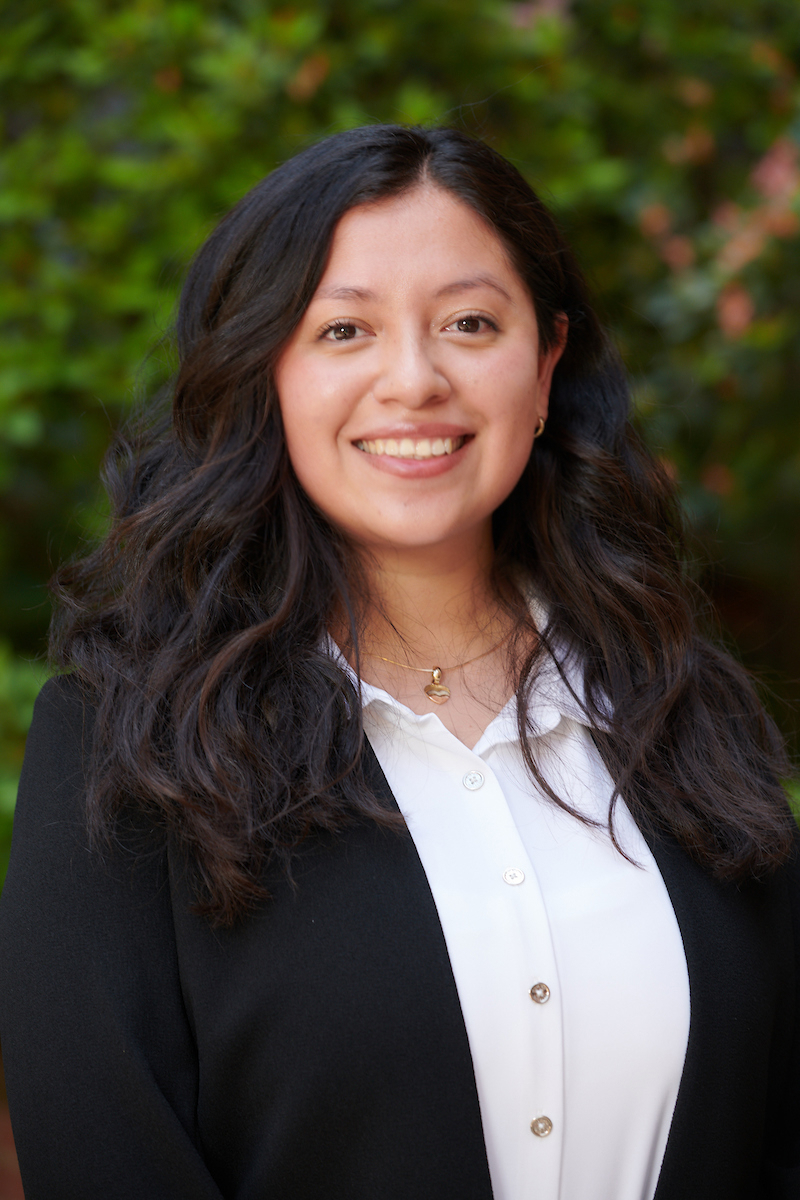
Growing up, my mother and other family members faced numerous barriers to exclusively breastfeed their children; unfortunately, this is a very common issue among Latinas. With this program, I hope to empower Latinas to exclusively breastfeed by providing important breastfeeding information and resources. I envision this program as not only helping the participants, but also uplifting and benefiting the broader Latino communities around them.
Executive Master of Public Health, UCLA Fielding School of Public Health
Project: A continuing education program to provide Community Health Workers (CHWs) with the knowledge and skills necessary to build capacity for risk mitigation and resilience against the health effects of climate change in indigenous communities.
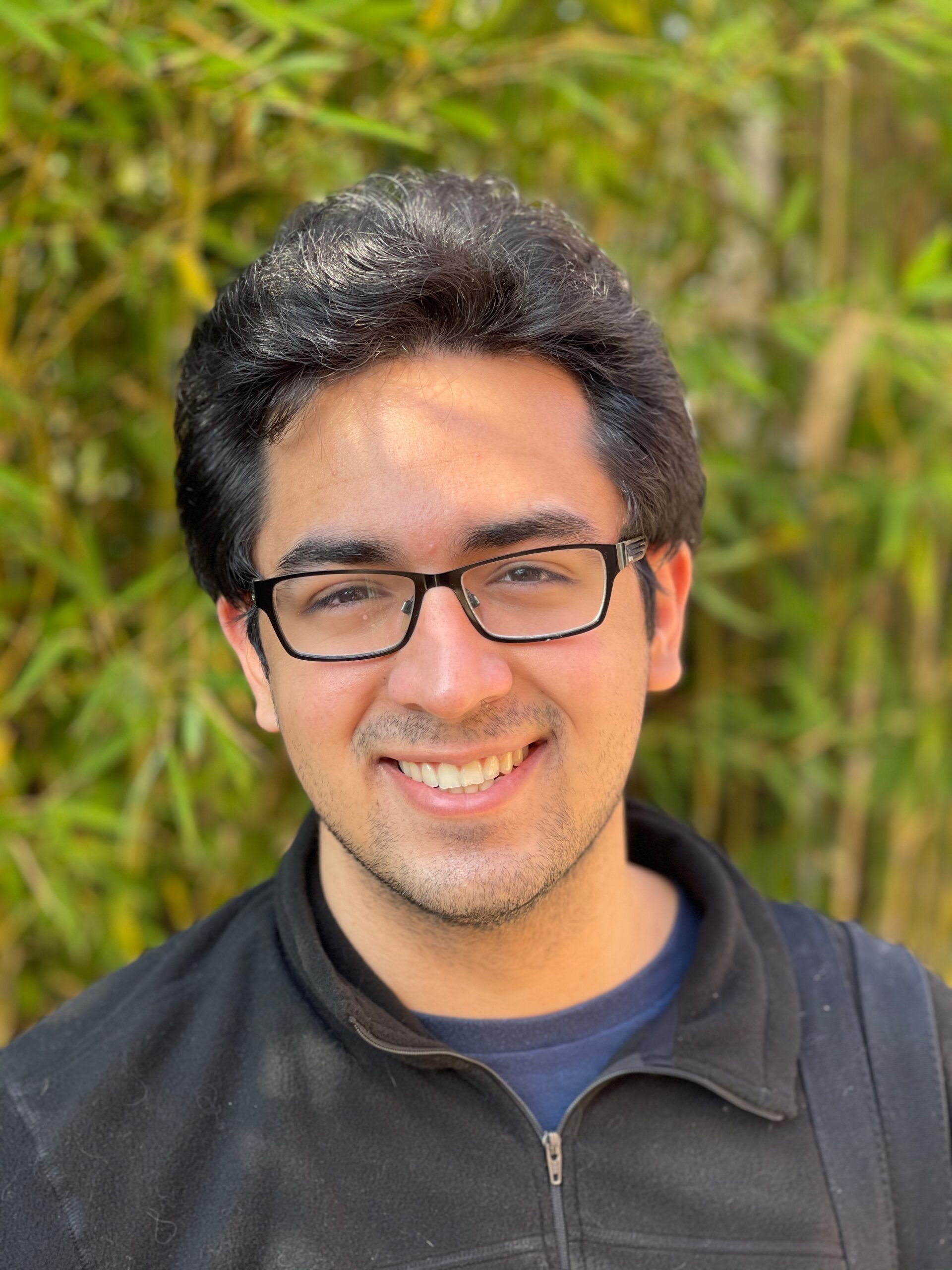
Cameron Salehi is an Executive MPH student in the UCLA EMPH Class of 2024. He was born and raised in Los Angeles, which he has called home for most of his life.
During his undergraduate years, Salehi was a resource and mentor to his peers as a resident assistant, serving local disadvantaged communities through the American Red Cross and conducting research in epigenetics relating to insulin resistance and diabetes. Following the onset of the COVID-19 pandemic, his interest in population and preventative health and passion for serving vulnerable populations drove him towards public health.
Soon after, Salehi became involved with the work done at Avicenna Next, a research and development/consulting company dedicated to the ideals of the Triple Aim of health care. Ever since, his professional efforts have largely concerned working with and advocating for the Community Health Worker (CHW) workforce through research, policy advocacy, and curriculum and workforce development. He hopes to continue working with CHWs and other health care workers, providers, and organizations to promote health equity through innovative solutions in medicine and health care.
Salehi earned a Bachelor of Arts in Molecular and Cell Biology from UC Berkeley in 2021.
As an emerging major environmental determinant of health in California and across the country, climate change and its associated environmental consequences are accentuating health inequities affecting vulnerable populations, particularly indigenous communities. I believe Community Health Workers (CHWs) are uniquely positioned to address and tackle climate-related effects on health in indigenous populations. Through the Health Equity Challenge, I hope to ultimately help reduce the health burdens of climate change in indigenous communities through impactful training and effective deployment of CHWs.
Master of Public Health in Community Health Sciences, UCLA Fielding School of Public Health
Project: Develop extreme heat survival trainings and toolkits for caregivers of older adults and people with chronic conditions to prepare them to respond to increasingly devastating natural disasters and protect vulnerable communities.
Nikolas Wianecki is a second-year MPH student in Community Health Sciences at the UCLA Fielding School of Public Health. An LA native, Wianecki returned to the city after graduating from Cal Poly San Luis Obispo with a BS in Psychology and completing two years of service with AmeriCorps.
Wianecki was driven to pursue scholarship in public health through witnessing the devastating impacts that traumatic life events have on health and well-being, especially for marginalized communities. Experiences working in gender-based violence prevention and COVID-19 response revealed the toll that personal and community-wide disasters take on physical and mental health. His academic and professional interests lie within the intersections of mental health, disaster public health, workforce development, and community-based interventions. Most recently, Wianecki has worked in projects around disaster workforce development, COVID-19 vaccine equity for NHPI and SEA communities, and gender-based violence in Kenya.
Outside of UCLA, Wianecki loves to create pottery on the wheel, bake, spend time outdoors, and care for his many plants. He also serves as a Plant Futures Fellow with the UC Berkeley Plant Futures Initiative, advocating for sustainable and equitable plant-based food systems.
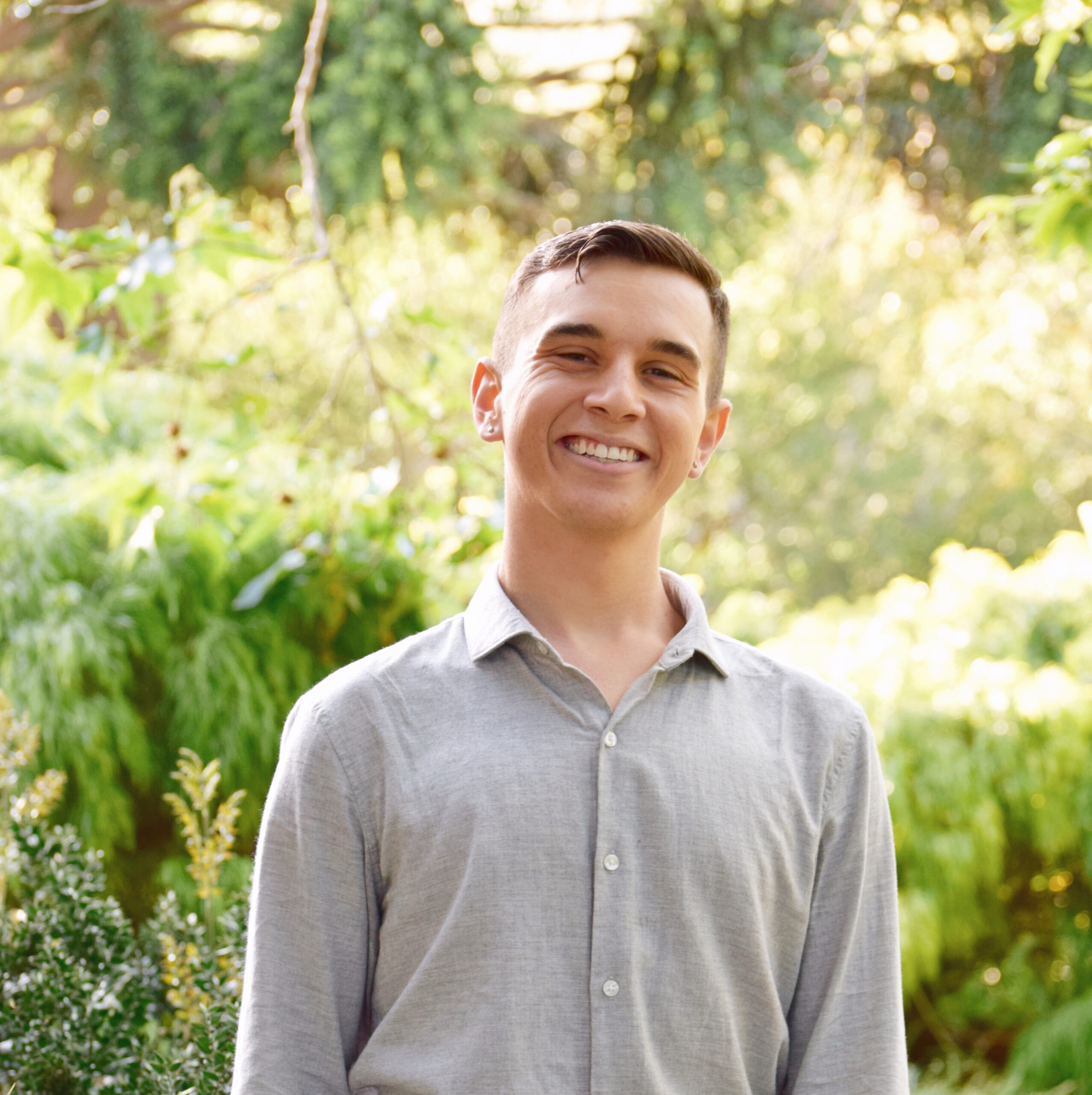
In my own life, I have seen the vital role that caregivers play in the health and well-being of loved ones, especially those that are elderly and have chronic conditions. With vulnerable populations facing disproportionate risks from climate change, I want to prepare households with caregivers to respond to increasingly devastating natural disasters. Through the Health Equity Challenge, I hope to equip caregivers, the elderly, and people with chronic conditions with the tools to protect ourselves, one another, and our communities in a changing climate.
Master of Science in Health Policy and Management, UCLA Fielding School of Public Health
Project: Implementation of a novel tax filing app, Let’s Get Set, to increase receipt of direct cash payments via tax credits for low-income families in community and health care settings.
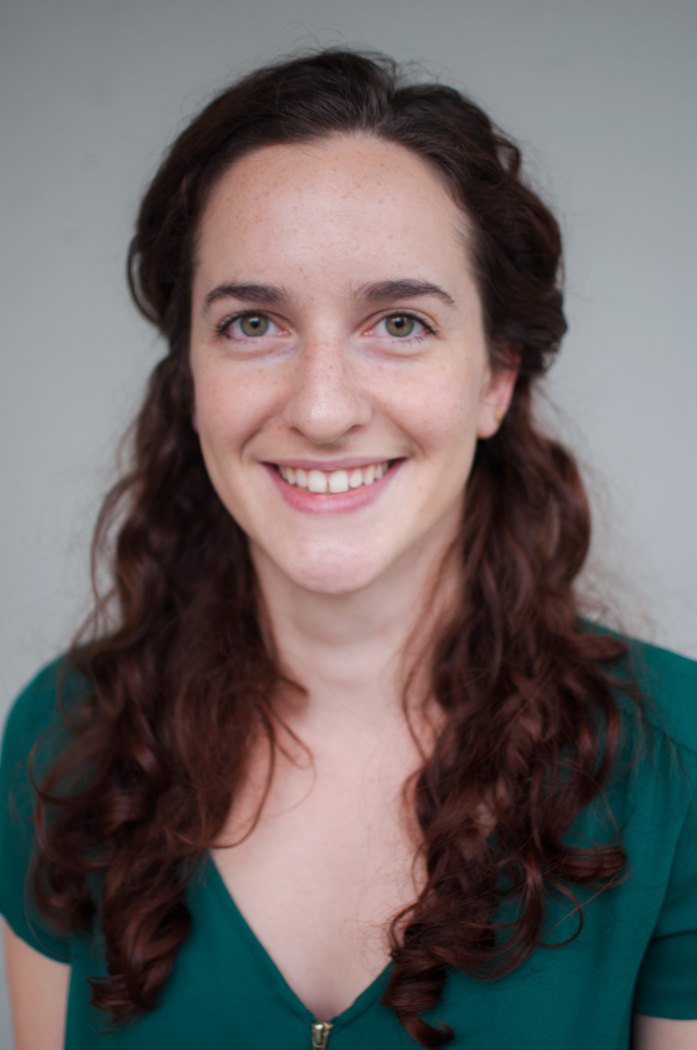
Cecile Yama is a pediatrician in the UCLA National Clinician Scholars Program and an MSHPM student at the UCLA Fielding School of Public Health. Dr. Yama specializes in caring for children with complex developmental and social needs. She is dedicated to building capacity for financial security in low-income families and children in early childhood, addressing racial and ethnic disparities in health and wealth across the life course.
Dr. Yama’s research focuses on how the economic and built environment shape child health and development. She is interested in how policy approaches, such as cash transfers and tax credits, can reduce structural inequities that drive child health disparities. Dr. Yama’s current projects involve expanding access to tax credits, addressing mortgage discrimination, and supporting safe housing through medico-socio-legal partnerships.
Dr. Yama’s work is motivated in part by her personal and family history. As the granddaughter of Holocaust survivors who immigrated to the United States through mutual aid, she has firsthand knowledge of how financial support can result in transcendent intergenerational change and upward mobility. Living and training in the immigrant communities of the Bronx has further shaped this lens. Dr. Yama’s history inspires her to study how to scale interventions that meet material needs of families who have been marginalized and position them for intergenerational well-being.
I chose the topic of expanding access to tax credits because closing the racial wealth gap can help children live healthier and longer lives. To do this, our intervention will leverage trusted health and community messengers and an innovative app to make wealth-building tools accessible to low-income families at the very start of childhood.
